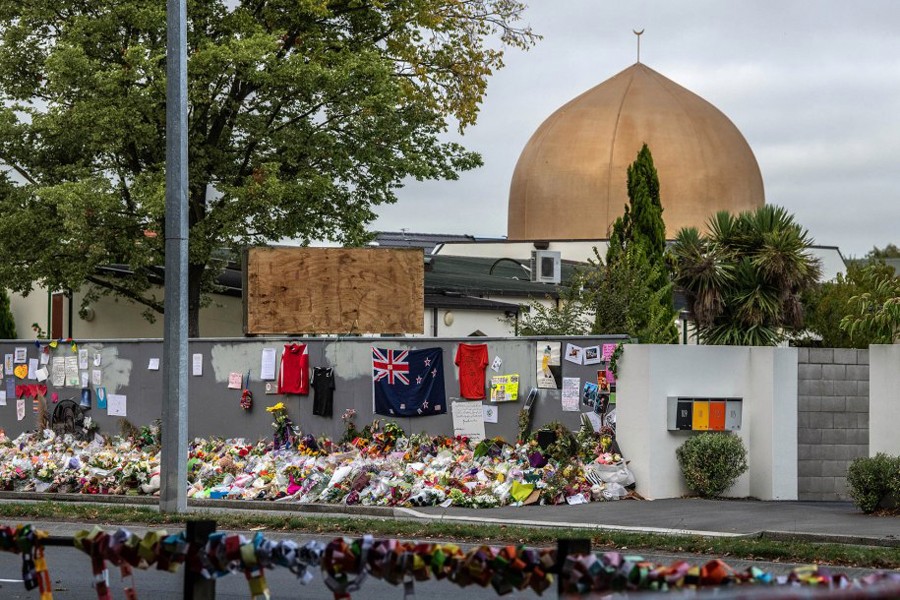In New Zealand's history, the deadliest attack on two mosques at Christchurch on 15 March 2019, killing 50 and injuring 50 other innocent Muslims during Friday prayer, throws a question to the psyche of the world whether such a heinous attack is an isolated incident or a very-well planned incident. Observing the prompt judgmental statement of Mike Bush, Police Commissioner of New Zealand, who considered it as 'a very well-planned event' just after the attack, and the information in the social media of the attacker, Brendon Tarrant, and subsequent life threat to New Zealand Prime Minister Jacinda Ardern who has been a symbol of empathy to other religious minority, the attack can be considered as a pre- and well-planned massacre. Then the question comes: what are the causes behind it?
Since the attacker identified himself as a believer in a 'far-rightist and anti-immigrant' ideology, the whole world seems to consider this ideology as the cause of his deadliest attack. But how could a man being himself an immigrant stand against the ideology of immigration? If his resentment is against only immigration, why should he expose his ill intention to attack only the Muslims in the social media? If we simplify this as it seems to be, we will never be able to foreground the other main cause behind this monstrous act.
The other main cause of this attack is the hatred generating from anti-Islamic discourse which has been propagandised through various disciplines such as literature, media, anthropology, history, music, painting, cartoon, etc. since crusades. But after the Cold War, this discourse has got the momentum. Discourse is not only a kind of speaking, talk, or conversation but also "a strongly bounded area of social knowledge, a system of statements within which the world can be known" as defined by Michel Foucault, a well-known French philosopher. Through the discourse, the resonance of Western sense of Islamic danger, which, whether real or imagined, is passing into the accepted myths of the Western society by misapprehension and misrepresentation. For example, V. S. Naipaul, a Nobel laureate for literature in 2001, termed (1981) Islam as 'the worst kind of imperialism' the world has ever experienced. Similarly, Daniel Pipes, an American historian, writer, believer in anti-immigration ideology, and commentator on Islamic fundamentalism, in his In the Path of God: Islam and Political Powers (1984) claims that the Muslims' grief over the loss of Muslim golden past and the once integrated Muslim civilisation, and the recent cash flow to the Muslims through the oil resources are making the Islamic fundamentalism grow stronger to consecrate the resentment of the West. Like litterateur and historian, Samuel P. Huntington, an American political scientist, through his highly overrated essay "The Clash of Civilizations" (1993) intended to provide 'a new phase' in world politics saying that the fundamental source of conflict in this new world will not be primarily ideological or economic; rather the dominating source of conflict will be civilisations specially between the Western and Islamic civilisations. In this regard, the Western media is one step ahead and telecast the 9/11 terrorist attack on the World Trade Centre of the USA in various headlines such as 'clash of civilisations', 'still Crusades', 'the roots of Muslim rage', 'Islamic war against modernity', 'fear of green menace' etc. This precipitated so sweeping 'Islamophobia' that Edward Said wrote (2002), "I don't know a single Arab or Muslim American who does not feel that he or she belongs to the enemy camp and that being in the United States at this moment provides us with an especially unpleasant experience of alienation, quite specifically targeted hostility".
Such a type of hostility that has been going on through certain discourses has been very instrumental in the unprecedented extremist attacks like the shootings on the praying Muslims at Al-Noor mosque. This anti-Islamic discourse has already passed the three distinct phases of conflict situation: "Grievance, Conflict Stage, and Dispute Stage" designed by Harun Or Rashid in his book An Introduction to Peace and Conflict Studies. At first, these deformed and distorted pictures of Islam through discourse from the various mediums along with the increasing number of Muslims both for the immigration and conversion in the Western countries have begotten the first stage (pre-conflict situation) of conflict: Grievance, which has been creating one kind of hatred among the non-Muslims against the Muslims. Then comes the second stage: Conflict Stage when the angry non-Muslims have tried to communicate their rage through the legally different ways and call for a remedy for this hatred but their communication does not bear any fruit or result in the psyche of the Western policy makers. Moreover, the Muslims are increasing rather than decreasing inevitably faster than the other immigrants belonging to other religions. Then the conflict comes to the final stage: Dispute Stage when this conflict is becoming public like this attack on the Al-Noor mosque and this conflict has already started happening at the individual level. But this individual security is the first stage to ensure the human security all over the world, according to UN.
During the era of neoliberal globalisation, not only all the political leaders but also all academics and media Mughals especially from the West have to extrapolate the other main cause behind this attack leaving aside the Frankenstein ideology; otherwise, Aime Cesaire will be right saying about the Western civilisation as follows: "A civilisation that proves incapable of solving the problems it creates is a decadent civilization".
Md. Habibullah is Associate Professor and Chairman of the Department of English at Presidency University and Adjunct Faculty in English, University of Dhaka.


